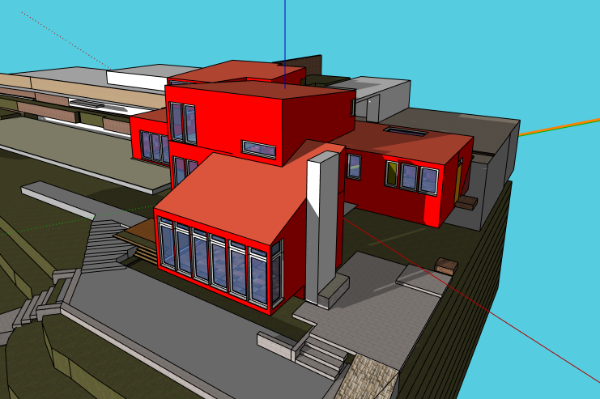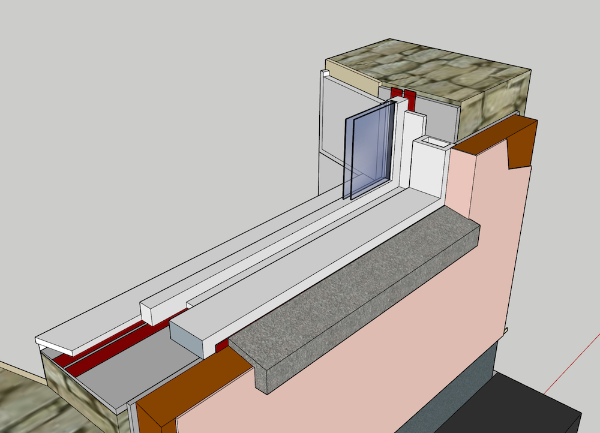
Projects
a selection of previous projects (more to be added soon)
Wolverhampton Restoration
Project: Restoration and retrofit of late 1960s modernist house which has fallen into disrepair. The proposals use low carbon materials and sensitive interventions to restore the unique design and preserve the building while making significant improvements to its energy efficiency and comfort.
Design: Axis Design Architects
Services: Passivhaus Planning Package (PHPP) and DesignPH modelling to determine energy balance and possible overheating risk of the project. Working with Axis Design Architects to develop shading and ventilation strategies to minimise overheating risk and ensure a comfortable living environment under current and future climate conditions.
Fishguard Retrofit
Project: Retrofit of Grade II listed building in Fishguard.
Design: One Point Five Architecture
Services: Working with One Point Five Architecture to develop the scheme to achieve the project aims whilst maintaining period features and preserving the listed building. PHPP modelling of existing building to determine baseline energy performance. Further modelling to develop specification, working to reduce energy use, increase comfort, and protect listed building from potential moisture issues, using low-impact materials. Thermal bridge modelling and developing details of airtightness and insulation.
Up Straw
Project: Major EU-funded project to research and promote best practice in straw building, and increase take-up of straw construction, via UK UpStraw partner School of Natural Building, resulting in a new straw Environmental Product Declaration and a Technical Design Guide
Services: Collection and analysis of UK Government straw/grain yield and inputs data, contributing to Life Cycle Assessment (LCA) and ultimately to new UK straw EPD; calculation of all material quantities used in standard UK loadbearing strawbale systems and their embodied carbon; thermal bridging analysis of standard UK load-bearing strawbale construction details (from Straw Works), to both Passivhaus and UK Building Regulations (SAP) requirements; gathering data from research into various aspects of strawbale construction and writing technical summary reports (including thermal conductivity, fire safety, load-bearing capacity); contributing to peer reviewed Technical Design Guide for UK Strawbale Construction.
Carbon assessment of retrofit options
Work in progress, building on a research project for Historic Environment Scotland and Zero Waste Scotland, in collaboration with John Gilbert Architects (to be published soon), looking at embodied and operational carbon, resource use, material wastage and care of historical buildings - in the context of improving thermal comfort and moisture management, with reduced energy use. Images shown here added some different options for a presentation at STBA/SPAB annual conference. This will all be developed further and written up soon, in addition to the HES/ZWS report.
Baley Bungalow
Design: Jakub Zucha-Wihan and John Butler
Project: Retrofit of 1960s cavity-wall bungalow, to low-energy/low-carbon dwelling. Strawbale external insulation, sheeps-wool internal insulation to brick section, cellulose fibre (recycled newspaper) insulation in roof, wood-fibre insulation to floor, removal of fossil fuel heating, and dramatic improvement in airtightness.
Services: self-build project - initial design, concept, materials research, planning, project management, construction (including building, clay and lime plastering internally, carpentry, strawbale work and tuition, MVHR installation, continued consultancy to current owner).
Building Sustainability Podcast
Two episodes of Jeffrey Hart’s Building Sustainability podcast. In the first we discuss all things Passivhaus and low energy, and in the second all things strawbale and low carbon, taking in what that really means (and doesn’t mean) and some enjoyable diversions along the way. I had a lovely time recording these and have been enjoying listening to other episodes too. There are many to choose from, it’s a brilliant podcast series! You can find them all at: https://www.buildingsustainabilitypodcast.com/




































